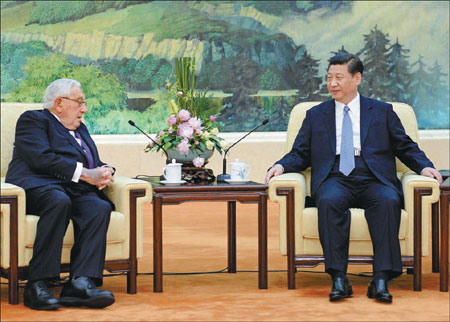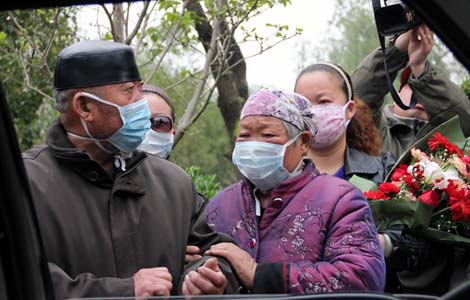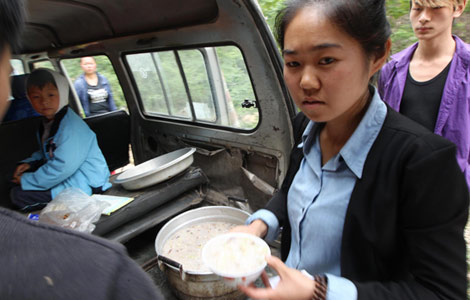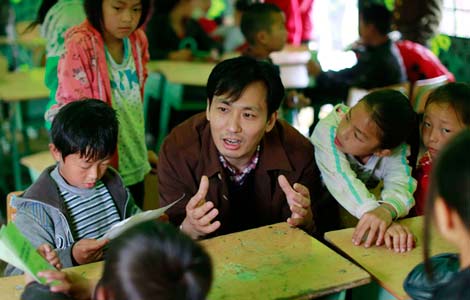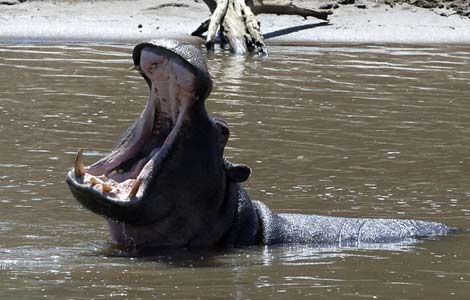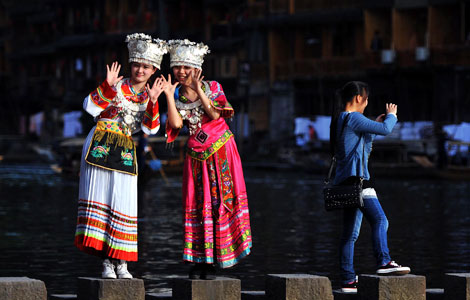Xi in flurry of US meetings
Updated: 2013-04-25 11:01
By Wu Jiao and Pu Zhendong in Beijingand Chen Weihua in Washington (China Daily)
|
||||||||
|
President Xi Jinping meets Henry Kissinger, former US secretary of state, in Beijing on Wednesday. Xi says the two countries should continue to work together on global and regional affairs. Li Tao / Xinhua |
Cabinet secretaries, state governors and military brass are among the current and former US officials who have met with Xi Jinping in the weeks since he became China's president.
The guest list grew longer on Wednesday with the arrival in Beijing of former secretary of state Henry Kissinger and former Treasury secretary Henry Paulson.
Analysts say the world's two biggest economic powers are engaged in frequent, unprecedented exchanges aimed at keeping their relationship grounded and avoiding misunderstanding. China recently concluded its once-a-decade leadership change, and US President Barack Obama is three months into his second term.
For Kissinger, a national security adviser and secretary of state under Richard Nixon and Gerald Ford, and the architect of modern China-US relations, no introductions were needed at his meeting with Xi. The two had met several times before Xi became president in March. Xi on Wednesday wished the veteran diplomat, who turns 90 in May, an early "happy birthday" and "good health and longevity".
The president said China and the United States should further expand their high-level exchanges and dialogue, identify shared interests and develop ways to handle disputes.
China and the US should "continue coordination on global and regional affairs, and maintain long-term, stable development of bilateral ties", Xi said.
Kissinger, whose secret 1971 visit to China set the stage for Nixon's historic trip a year later and who has returned to the country more than 80 times, said: "US-China cooperation is vital not only to the two countries, but also to the world."
The countries, he added, should deepen communication and cooperation in the key areas of peace and stability, which would be of benefit globally.
Xi credited Kissinger for exerting a positive influence on US-China relations during the administrations of eight US presidents, in both official and informal roles.
Since becoming China's top Party official in November, Xi has met two current Cabinet members - Secretary of State John Kerry and Treasury Secretary Jacob Lew - in addition to some governors and former president Jimmy Carter.
A succession of high-level exchanges between Beijing and Washington during the early months of Xi's presidency and Obama's second term will help reaffirm the importance of the relationship and possibly set a framework for its future, according to several analysts.
The recent visits by US officials at various levels show at least that their country is seriously considering the future direction of relations with China, and that should be welcomed, said Jin Canrong, a professor of US studies at Renmin University in Beijing.
There is great potential for continued improvement of US-China ties, Jin said, given that Obama's administration is still working out its China policy and Beijing, in Xi's words, has posited the idea of "a new type of great-power relationship".
Zbigniew Brzezinski, who served as Carter's national security adviser, said on Wednesday that he hoped serious efforts would soon be made to establish a US-China dialogue at the highest level - between Obama and Xi. That would reaffirm a January 2011 statement by Obama and then-President Hu Jintao that their countries' relationship is critical to global stability, Brzezinski told an audience at the Center for Strategic and International Studies in Washington.
He said it's important that the two sides engage in serious dialogue, not merely exchange nice words.
"We have to realize we have here at stake something that, if it works out, will be historically constructive and without precedent - namely, the two powers engaged in some kind of collaboration.
"But if we don't reach that kind of level of partnership, we will have a serious situation in the world," Brzezinski said.
David Lampton, a China specialist who teaches at Johns Hopkins University's Paul H Nitze School of Advanced International Studies, said the US - from Obama, first-term secretary of state Hillary Clinton and current National Security Adviser Tom Donilon - has responded favorably to Xi's concept of a new type of relationship.
But the next stage of dialogue should flesh out that idea, he said.
Carla Hills, chairwoman of the National Committee on United States-China Relations, said the US should work more closely with China. She favors more meetings, more frequently and in small groups.
"It's important to both of us, the two largest economies, and to the world," said Hills, a former US trade representative.
Contact the writers at wujiao@chinadaily.com.cn, puzhendong@chinadaily.com.cn and chenweihua@chinadailyusa.com
Most Viewed
Editor's Picks

|

|

|

|

|

|
Today's Top News
Sluggish growth takes its toll on foreign lenders
Investors find a home in overseas real estate
More Chinese travel overseas, study reveals
Xi meets former US heavyweights
Li in plea to quake rescuers
Canada to return illegal assets
Beijing vows to ease Korean tensions
Order restored after deadly terrorist ambush
US Weekly

|

|
